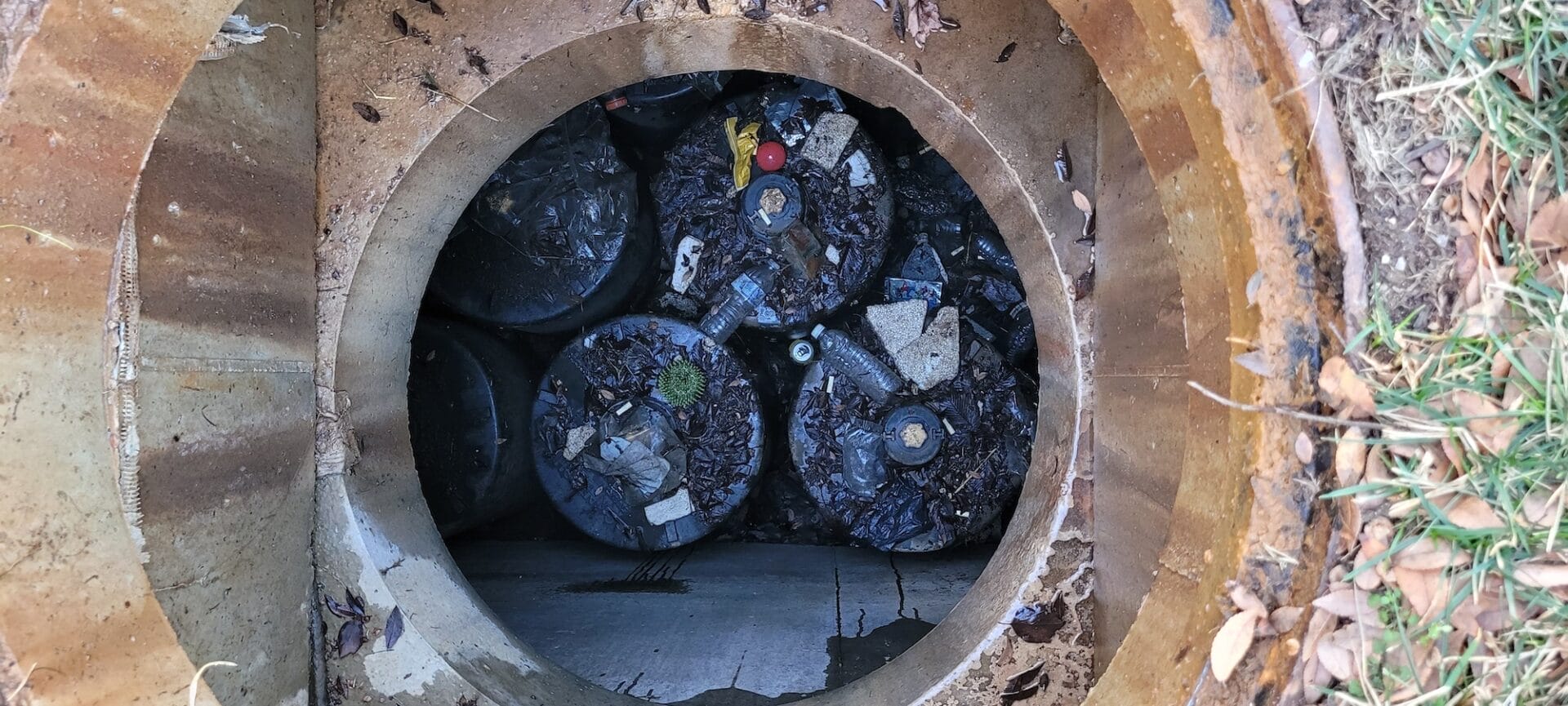Stormwater is the name given to rainfall or snowmelt that drains and flows over surfaces such as parking lots, rooftops, roadways, and sidewalks. Effective stormwater management is crucial in mitigating floods, preventing erosion, and curbing pollution from contaminating waterways. In commercial settings, where large areas of impervious surfaces are common, stormwater management and maintenance become crucial to protecting the environment and complying with jurisdictional regulations.
Importance of Stormwater Management in Commercial Settings
For commercial properties in Virginia, Maryland, and Washington DC, stormwater management is essential for several reasons.
First, it helps prevent flooding by ensuring stormwater is appropriately managed and conveyed to the appropriate drainage area. During heavy weather events, stormwater can quickly overwhelm drainage systems and cause damage to infrastructure and properties.
Second, it helps reduce erosion and prevents sediment from reaching water bodies, which can greatly impact aquatic habitats and water quality.
Lastly, effective stormwater management demonstrates a business’s compliance with local regulations and commitment to environmental responsibility.
Challenges of stormwater management in commercial settings
Managing stormwater in commercial settings presents several unique challenges that require careful attention and proactive solutions.
- Impervious surfaces: Commercial properties often contain extensive areas impervious to rain or snowmelt. Parking lots, sidewalks, and rooftops are most commonly made of impervious surfaces like concrete, asphalt, and roofs. These surfaces prevent water from infiltrating the ground, leading to increased stormwater runoff.
- Large areas to manage: Commercial settings often cover vast areas of land. Shopping centers, malls, and industrial complexes, can encompass acres of land, making stormwater management a complex task. Properly maintaining stormwater systems across such expansive areas requires careful planning and efficient implementation.
- Increased risk of pollutants: Commercial properties are home to a wide range of business types, such as restaurants, car washes, industrial and manufacturing plants, and automotive businesses. These businesses often introduce various pollutants into stormwater runoff, including oil, chemicals, sediment, and trash. Managing and preventing these pollutants from entering water bodies is a significant challenge. Each of these pollutants must be taken into consideration when constructing and maintaining stormwater facilities and best management practices.
- Limited space for stormwater management practices: Many commercial properties, especially those in urban areas like the DC metro region, must contend with space limitations when implementing stormwater management practices. Traditional stormwater management systems, such as large retention ponds, require significant land area and are not feasible for smaller commercial properties.
- High repair and maintenance costs: Stormwater maintenance in commercial settings can be expensive due to the scale of the facilities involved. However, regular inspections, cleaning, and upgrades can help property owners avoid unforeseen repair costs.
Solutions for stormwater management in commercial settings
To overcome the challenges associated with stormwater management in commercial settings, businesses can implement the following solutions:
- Develop a maintenance plan: The best solution for dealing with stormwater maintenance in a commercial setting is to develop and implement a plan for the management of stormwater. Having a viable stormwater management plan will make it much easier to anticipate and deal with the problems caused by stormwater in a commercial setting.
- Use of best management practices (BMPs) for stormwater management: BMPs are managerial, structural or vegetative practices that are used in the treatment, prevention or reduction of water pollution. Best management practices can take many forms, including permeable pavements, rain gardens, vegetated swales, and sediment basins. Implementing BMPs within a commercial property can help reduce runoff, promote infiltration, and remove pollutants.
- Incorporating green infrastructure: An effective method of dealing with stormwater in commercial settings is to incorporate green infrastructure. Examples include bioretention areas, which use vegetation and soils to treat stormwater, and underground detention facilities, which temporarily store and slowly release stormwater. These natural and engineered systems are designed to mimic biological processes to manage and treat stormwater.
- Educating employees, tenants, and the public about stormwater management: Commercial property owners should provide training and educational materials to employees, tenants, and the public about the importance of stormwater management practices. A basic understanding of stormwater practices can help them identify issues that may protect the properties and nearby waterways from the damaging effects of stormwater runoff.
- Regular inspections and maintenance of stormwater facilities: It is also a good idea to perform regular inspections and maintenance on stormwater infrastructure to ensure that they remain up to code and will continue to be able to perform their function in the manner in which they are intended to.
- Collaboration with neighboring businesses and communities: Effective stormwater management requires collective efforts. Commercial property owners and managers can collaborate with neighboring properties, community organizations, and their local government to develop shared stormwater management strategies.
How Muller Can Help Enhance Your Stormwater Management Efforts
Effective stormwater maintenance in commercial settings is essential for mitigating environmental impacts and keeping your property compliant with local, state, and federal requirements. Commercial property owners can successfully manage stormwater, protect water quality, and comply with regulations by implementing proactive strategies, such as best management practices, green infrastructure, regular inspections, and community collaboration.
Muller, Inc. has decades of experience constructing and maintaining stormwater management systems in commercial settings. Contact them today via their website or at 703-560-4040 to optimize your stormwater management efforts.

